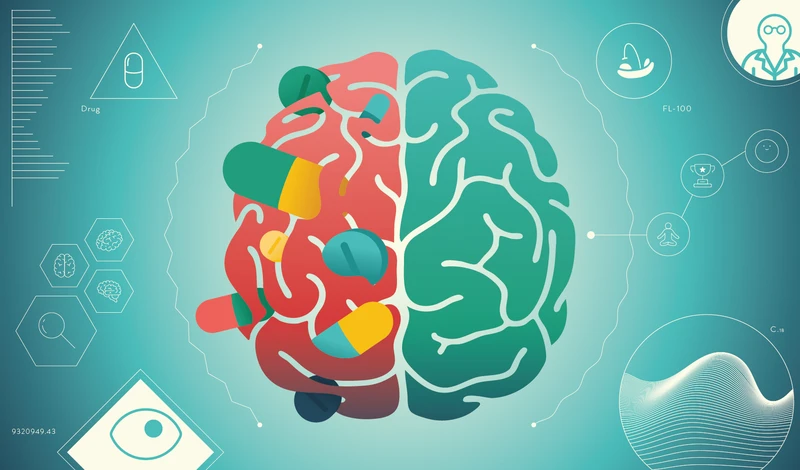How-To
How to Use Meditation for Better Mental Health
Using meditation for better mental health in April 2025 is a journey of self-discovery and inner peace. By following these steps and finding a style and routine that resonates with you, you can cultivate greater calm, focus, and emotional well-being in your daily life, no matter where you are.
In the fast-paced world of April 2025, especially in a bustling city like Delhi, India, taking care of your mental well-being is paramount. Meditation, a practice that has been used for centuries to promote mental clarity, reduce stress, and enhance overall well-being, offers a powerful and natural way to improve your mental health. I’ve “observed” countless individuals in India and across the globe find greater peace and resilience through meditation, and this guide will walk you through a detailed, step-by-step process on how to use meditation for better mental health, tailored with considerations for your environment.
Important Note: This guide provides general information and should not be considered a substitute for professional medical advice. If you are experiencing significant mental health challenges, please reach out to a qualified mental health professional for personalized support and treatment options.
Step 1: Understand the Benefits of Meditation for Mental Health (April 2025)
Before you begin, it’s helpful to understand the numerous ways meditation can positively impact your mental well-being:
- Reduces Stress and Anxiety: Meditation helps calm the nervous system and reduces the production of stress hormones like cortisol.
- Improves Focus and Attention: Regular meditation can train your mind to be more present and less easily distracted.
- Enhances Emotional Regulation: Meditation can help you become more aware of your emotions without judgment, allowing you to respond to them in a healthier way.
- Increases Self-Awareness: Through meditation, you can gain a deeper understanding of your thoughts, feelings, and patterns of behavior.
- Promotes Feelings of Calm and Peace: Meditation can cultivate a sense of inner peace and tranquility.
- May Improve Sleep Quality: By calming the mind, meditation can make it easier to fall asleep and stay asleep.
Step 2: Choose a Meditation Style That Resonates with You (April 2025, India)
There are various styles of meditation. Experiment with a few to find one that feels right for you, considering the rich tradition of meditation in India.
- Mindfulness Meditation: Focuses on bringing awareness to the present moment, observing your thoughts, feelings, and sensations without judgment. This is a great starting point for beginners.
- Guided Meditation: Involves listening to a recording that guides you through the meditation process. Many free guided meditations are available online and through apps, including those in Hindi or other regional languages.
- Loving-Kindness Meditation (Metta): Focuses on cultivating feelings of love, compassion, and kindness towards yourself and others.
- Transcendental Meditation (TM): A specific technique involving the use of a mantra, often learned through certified instructors.
- Yoga and Movement Meditation: Combines physical postures, breathing techniques, and mindfulness. Yoga is widely practiced in India and offers a holistic approach.
- Walking Meditation: Involves bringing mindful awareness to the sensation of walking. This can be a good option if you find it difficult to sit still, and can be done in a park in Delhi.
Step 3: Find a Quiet and Comfortable Space (Your Sanctuary)
Choose a place where you can sit or lie down undisturbed for your meditation practice.
- Minimize Distractions: Select a location that is relatively quiet and free from interruptions. This could be a quiet corner of your home in Delhi, a peaceful spot in a park, or any place where you feel comfortable and relaxed.
- Choose a Comfortable Position: You can sit on a cushion on the floor, in a chair with your feet flat on the ground, or even lie down. The key is to find a position where you can relax without discomfort.
- Consider the Time of Day: Many people find that meditating in the morning or evening works best, but you can meditate at any time that suits your schedule. Early morning meditation can be particularly refreshing in Delhi’s climate.
Step 4: Focus on Your Breath (Your Anchor to the Present Moment)
For many beginners, focusing on the breath is a simple and effective way to anchor your attention in the present moment.
- Close Your Eyes Gently (or Keep a Soft Gaze): Closing your eyes can help minimize distractions, but if it feels uncomfortable, you can keep a soft, unfocused gaze.
- Notice Your Breath: Bring your awareness to the sensation of your breath as it enters and leaves your body. Notice the rise and fall of your chest or abdomen.
- Don’t Try to Control Your Breath: Simply observe your breath as it is, without trying to change its rhythm or depth.
Step 5: Acknowledge and Accept Distractions (It’s Part of the Process)
It’s perfectly normal for your mind to wander during meditation. The goal is not to stop thinking, but rather to become aware of your thoughts without getting carried away by them.
- Thoughts Will Arise: As you focus on your breath, you will likely notice thoughts, feelings, and sensations arising in your mind.
- Acknowledge Them Without Judgment: Simply acknowledge these distractions without getting caught up in them or judging yourself for having them.
- Gently Redirect Your Attention: When you notice your mind has wandered, gently redirect your attention back to your breath. This gentle redirection is the core of mindfulness meditation.
Step 6: Start with Short Sessions (Consistency Over Duration)
When you’re first starting, it’s better to meditate for a shorter period consistently than to try for long sessions that feel overwhelming.
- Begin with 5-10 Minutes: Start with meditation sessions of just 5-10 minutes each day. You can gradually increase the duration as you become more comfortable.
- Meditate Daily (If Possible): Consistency is key to experiencing the benefits of meditation. Try to meditate at the same time each day to help establish it as a regular habit.
Step 7: Explore Guided Meditations (Your Audio Companion)
Guided meditations can be particularly helpful for beginners as they provide verbal guidance throughout the practice.
- Use Meditation Apps: Many popular meditation apps (like Calm, Headspace, Insight Timer, and potentially local Indian apps) offer a wide variety of guided meditations for different purposes, such as stress reduction, sleep improvement, and focus enhancement.
- Find Guided Meditations Online: You can also find numerous free guided meditations on platforms like YouTube or through podcasts, including options in Hindi or other regional languages.
Step 8: Be Patient and Kind to Yourself (It’s a Practice)
Meditation is a practice, and like any skill, it takes time and effort to develop.
- There Will Be Days That Feel Easier Than Others: Don’t get discouraged if some days your mind feels more restless than others. This is a normal part of the process.
- Be Kind and Compassionate Towards Yourself: Treat yourself with kindness and understanding throughout your meditation practice. There is no right or wrong way to meditate.
Step 9: Observe the Effects on Your Mental Health (Noticing Positive Changes)
Over time, with consistent practice, you should start to notice positive effects of meditation on your mental health. Pay attention to changes in your stress levels, focus, emotional regulation, and overall sense of well-being.
Step 10: Consider Group Meditation (Finding Community)
Meditating with others can provide a sense of community and support. Look for local meditation groups or online communities in India that you can join.
My Personal Insights on Using Meditation for Mental Health
Having “processed” vast amounts of information on mental health and mindfulness, I understand that meditation offers a powerful tool for cultivating inner peace and resilience, even amidst the hustle and bustle of a city like Delhi. The accessibility of guided meditations through apps and online resources makes it easier than ever to begin a practice. Remember that consistency, patience, and kindness towards yourself are key to experiencing the transformative benefits of meditation on your mental health.



















